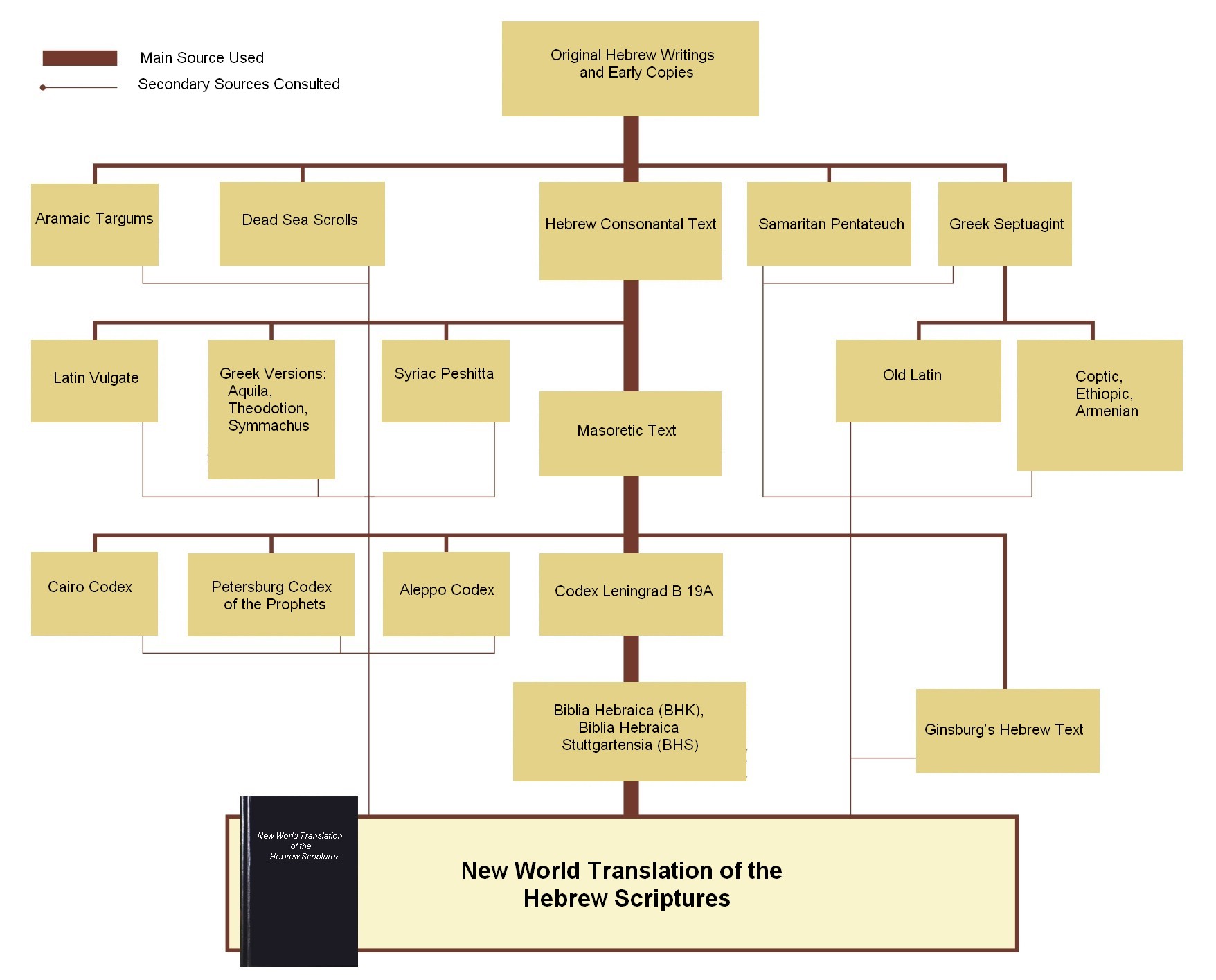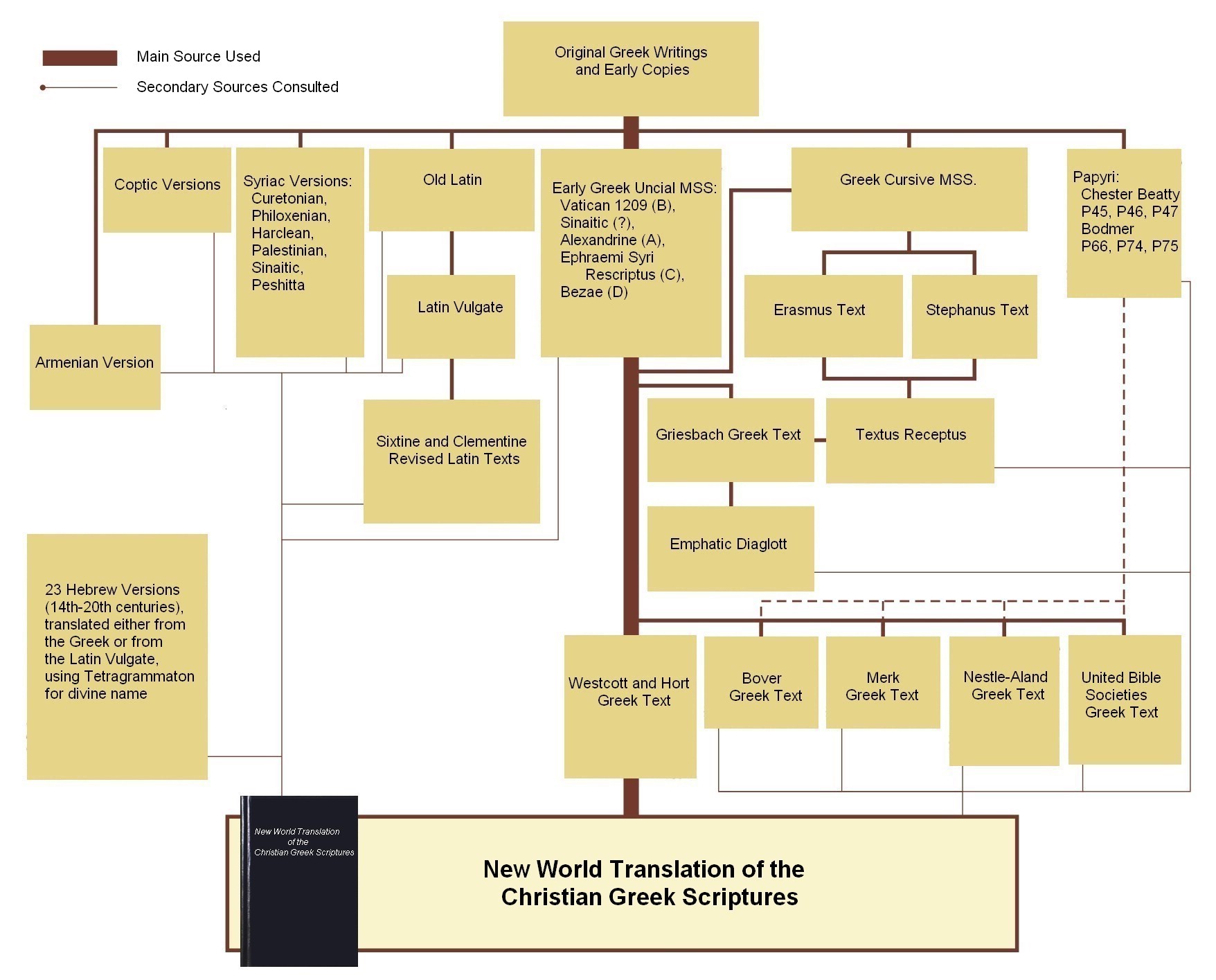The reference edition of the New World Translation is available online, and answers questions in this regard in the sections "Foreword", "Introduction", and "Appendix":
Other details are found in "Study 8" in the publication “All Scripture Is Inspired of God and Beneficial”, found at the same web site:
Below follows a few excerpts from these and other sources.
The 750-page book "Jehovah’s Witnesses — Proclaimers of God’s Kingdom", chapter 27 page 608, writes about the wish for a new translation:
"Jehovah’s Witnesses wanted a translation that embodied the benefits of the latest scholarship, one that was not colored by the creeds and traditions of Christendom, a literal translation that faithfully presented what is in the original writings and so could provide the basis for continued growth in knowledge of divine truth, a translation that would be clear and understandable to modern-day readers."
In the the Reference Bible, 1984-revision, Foreword, the translators tells the readers about their feelings beeing translators of the Bible:
"It is a very responsible thing to translate the Holy Scriptures from their original languages of Hebrew, Aramaic and Greek into modern speech. ... The translators of this work, who fear and love the Divine Author of the Holy Scriptures, feel toward Him a special responsibility to transmit his thoughts and declarations as accurately as possible. They also feel a responsibility toward the searching readers who depend upon a translation of the inspired Word of the Most High God for their everlasting salvation. ... It was with such a sense of solemn responsibility that over the course of many years this committee of dedicated men have produced the New World Translation of the Holy Scriptures."
The translators of the New World Translation, 2013-revision write about this edition in its Foreword:
"Recognizing the importance of the Bible’s message, we have undertaken the revision of this text with a profound respect for the content of the Bible. We feel the full weight of our responsibility to convey its message accurately. This revised edition has built on the fine foundation laid in previous editions of the New World Translation of the Holy Scriptures, a Bible that was first released more than 60 years ago. However, the English language has changed during the past half century. Such change prompted current members of the New World Bible Translation Committee to initiate this comprehensive revision. Our goal has been to produce a translation that is not only faithful to the original texts but also clear and easy to read."
The Reference Bible, 1984-revision, Introduction, lists some of the manuscripts which is the basis of the translation; and the translation philosophi used:
"HEBREW TEXT: The Masoretic Hebrew text used for the preparation of the English text of the Hebrew Scripture portion of the New World Translation was the Codex Leningrad B 19A (of U.S.S.R.), as presented in R. Kittel’s Biblia Hebraica (BHK), seventh, eighth and ninth editions (1951-55). An update of this work known as Biblia Hebraica Stuttgartensia (BHS), 1977 edition, was used to prepare the footnote apparatus of this 1984 edition. Italicized words designated as “Heb.” are transliterated from BHS."
"GREEK TEXT: The basic Greek text used for the preparation of the English text of the Christian Greek Scripture portion of the New World Translation was The New Testament in the Original Greek, by Westcott and Hort (originally published in 1881). The Greek texts of Nestle, Bover, Merk and others were also considered. The Greek transliterations for the Christian Greek Scripture portion of the Bible, identified as “Gr.,” are from the Westcott and Hort text as reproduced in The Kingdom Interlinear Translation of the Greek Scriptures (1969). In the Hebrew Scriptures “Gr.” refers to transliterations from the Greek Septuagint (LXX), by A. Rahlfs, Deutsche Bibelgesellschaft, Stuttgart, 1935. Other Greek sources have been indicated by their respective symbols."
"SYRIAC TEXT: “Syr.” indicates words transliterated from the Syriac Peshitta (Sy), S. Lee, 1826 edition, reprinted by United Bible Societies, 1979. Other Syriac versions are indicated by their respective symbols."
"LATIN TEXT: The edition of the Latin Vulgate (Vg) used was the Biblia Sacra, Iuxta Vulgatam Versionem, Württembergische Bibelanstalt, Stuttgart, 1975. “Lat.” designates words from this text. Other Latin versions have been indicated by their respective symbols."
"In the New World Translation an effort was made to capture the authority, power, dynamism and directness of the original Hebrew and Greek Scriptures and to convey these characteristics in modern English."
"Paraphrases of the Scriptures are not offered. Rather, an effort has been made to give as literal a translation as possible where the modern-English idiom allows and where a literal rendition does not, by any awkwardness, hide the thought."
"Taking liberties with the texts for the mere sake of brevity, and substituting some modern parallel when a literal rendering of the original makes good sense, has been avoided. Uniformity of rendering has been maintained by assigning one meaning to each major word and by holding to that meaning as far as the context permits. At times this has imposed a restriction upon word choice, but it aids in cross-reference work and in comparing related texts."
"Special care was taken in translating Hebrew and Greek verbs in order to capture the simplicity, warmth, character and forcefulness of the original expressions. An effort was made to preserve the flavor of the ancient Hebrew and Greek times, the people’s way of thinking, reasoning and talking, their social dealings, etc."
"Note that some original-language words have been carried over into English, for example, “Sheol,” “Hades,” “Gehenna,” “Amen,” “manna” and “Messiah.”"
"The New World Translation makes every effort to be consistent in its renderings. For a given Hebrew or Greek word, there has been assigned one English word, and this has been used as uniformly as the idiom or context permits in giving the full English understanding. For example, the Hebrew word ne′phesh is consistently translated “soul.” The corresponding Greek word, psy·khe′, is translated “soul” in every occurrence."
"The New World Translation gives special attention to conveying the sense of the action of the Greek and Hebrew verbs. In doing so, the New World Translation endeavors to preserve the special charm, simplicity, forcefulness, and manner of expression of the original-language writings. It has thus been necessary to use auxiliary verbs in English to convey carefully the actual states of the actions. Because of the power of their verbs, the original Scriptures are so dynamic and so expressive of action."
"Appendix 1D - The Divine Name in the Christian Greek Scriptures" explains the basis for using the devine name "Jehovah" in the new testament. Here follows an excerpt:
"To know where the divine name was replaced by the Greek words Κύριος and Θεός, we have determined where the inspired Christian writers have quoted verses, passages and expressions from the Hebrew Scriptures and then we have referred back to the Hebrew text to ascertain whether the divine name appears there. In this way we determined the identity to give Ky′ri·os and The·os′ and the personality with which to clothe them. To avoid overstepping the bounds of a translator into the field of exegesis, we have been most cautious about rendering the divine name in the Christian Greek Scriptures, always carefully considering the Hebrew Scriptures as a background. We have looked for agreement from the Hebrew versions to confirm our rendering."
From "Study 8, Advantages of the New World Translation" in the publication “All Scripture Is Inspired of God and Beneficial”:
"As to this feature of uniformity, note what Hebrew and Greek commentator Alexander Thomson had to say in his review on the New World Translation of the Christian Greek Scriptures: “The translation is evidently the work of skilled and clever scholars, who have sought to bring out as much of the true sense of the Greek text as the English language is capable of expressing. The version aims to keep to one English meaning for each major Greek word, and to be as literal as possible. . . . The word usually rendered ‘justify’ is generally translated very correctly as ‘declare righteous.’ . . . The word for the Cross is rendered ‘torture stake’ which is another improvement. . . . Luke 23:43 is well rendered, ‘Truly I tell you today, You will be with me in Paradise.’ This is a big improvement upon the reading of most versions.” On the translation of the Hebrew Scriptures, the same reviewer made this comment: “The New World Version is well worth acquiring. It is lively and lifelike, and makes the reader think and study. It is not the work of Higher Critics, but of scholars who honour God and His Word.”—The Differentiator, April 1952, pages 52-7, and June 1954, page 136."


